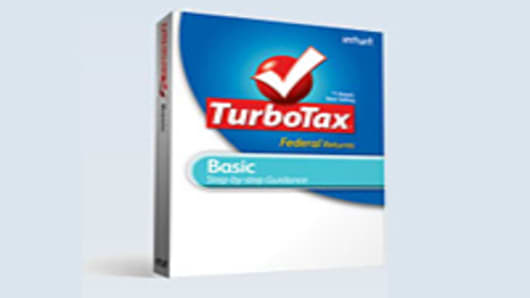Officials for Intuit, the Mountain View, Calif., company that produces the program, were alerted to the problem last week, after a retired federal worker from Virginia noticed that TurboTax had automatically double-counted his medical insurance premiums as deductions.
When questioned about the problem by a reporter last week, Intuit said it had begun working with the I.R.S. to revise its computer-prompted instructions on TurboTax and prevent such errors in the future.
TurboTax, owned by Intuit since 1993, dominates the tax preparation software business in this country and accounts for about 75 percent of the market. In recent years, as the I.R.S. has aggressively urged taxpayers to file electronically, the company has become a big processor, and this year is likely to be used to handle more than 20 million of approximately 140 million individual returns.
The program has nonetheless been troubled by occasional glitches and security breeches, notably in 2007, when so many last-minute filers overwhelmed the TurboTax servers that many returns failed to make it to the I.R.S. by the filing deadline.
Both I.R.S. and Intuit officials were scrambling to gauge the scope of the problem involving the federal retirees, but said only a limited number of returns appeared to be involved.
The I.R.S. issued a statement Tuesday saying that, after consulting with Intuit, it believed the problem was confined to a small subset of filers — retired federal workers (filing a CSA-1099-R form) and survivors of federal employees (using a CSF-1099-R).
Julie Miller, an Intuit spokeswoman, said that the company suspected that the total number of filers affected by the mistake would not exceed “several thousand” because it only affected federal retirees who used TurboTax, itemized their deductions and had health care costs that exceeded 7.5 percent of their adjusted gross income.
Intuit policy is to pay any interest or penalties assessed to filers who have underpaid their taxes because of the glitch. Ms. Miller said that under the TurboTax satisfaction guarantee, customers are also entitled to a refund for the purchase price of the software if they are unhappy with it for any reason.
The man who reported the problem, Charlie Freret of Chantilly, Va., stumbled across the error while using a free version of TurboTax to e-file a tax return he had already prepared on paper. Mr. Freret, who retired as a lawyer in the Department of Veterans’ Affairs in 2004, said he had hoped that e-filing would allow him to get his refund more quickly. But the tax return calculated by TurboTax promised him a refund $600 larger than he was entitled to because it automatically added his medical insurance premiums to his deductions — after the computer-generated prompt had instructed him to enter his health care expenses manually.
Mr. Freret said he figured that he probably could have taken the $600 bonus and never been caught because retiree medical benefits seem unlikely to flag an audit. But as a federal employee he also worried that millions of other taxpayers might do the same, further depleting the nation’s already troubled treasury.
“It seemed like the right thing to do,” said Mr. Freret, 63, adding that he has always tried to adhere to the code of conduct instilled at his alma mater, Washington and Lee University. “The honor code called for you to be a Southern gentleman: ‘Don’t lie, don’t cheat and don’t steal.’ ” he said.
Mr. Freret reported the problem to Intuit officials and, when the company acknowledged the error but did not issue a broad warning about how to avoid it, decided to report it to the I.R.S. and the Treasury Department. But auditors at the Treasury Inspector General for Tax Administration were unable to duplicate the error when they tested versions of the software, so Mr. Freret contacted members of the news media, including The New York Times.
J. Russell George, the Treasury’s inspector general for tax administration, said his office was planning to begin a thorough review of TurboTax and similar software, which has become far more widely used than when last audited in 2005.
“This is especially troubling given the fiscal constraints that the nation finds itself in because this problem could allow people to pay less money than they owe,” Mr. George said. “It is truly incumbent upon us to let taxpayers have confidence that the software they use to prepare their returns will be accurate.”


